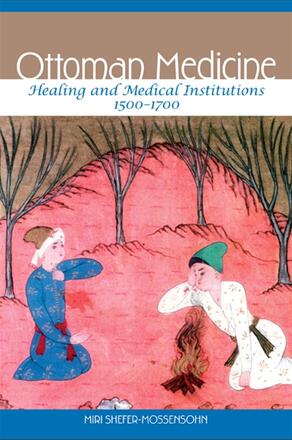
Ottoman Medicine
Healing and Medical Institutions, 1500-1700
Alternative formats available from:
First work in English devoted to medicine in the Ottoman world.
Description
The social history of medicine in the Ottoman Empire and the historic Middle East is told in rich detail for the first time in English. Accessible and engaging, Ottoman Medicine sheds light on the work and power of medical practitioners in the Ottoman world. The enduring significance and fascinating history of Ottoman medicine emerge through a consideration of its medical ethics, troubled relationship with religion, standards of professionalism, bureaucratization and health systems management, and the extent of state control. Of interest to healthcare providers, healers, and patients, this book helps us better understand and appreciate the medical practices of non-Western societies.
Miri Shefer-Mossensohn is Lecturer in Middle Eastern History at Tel Aviv University.
Reviews
"Ottoman Medicine leaves its readers excited about where Shefer-Mossensohn might take her future research—on Ottoman medicine as well as on medical theory, practice, and rhetoric writ large. " — Journal of the American Oriental Society
"…the book's main strengths lie in the substantial and varied evidence, the rich anecdotes, and the comparisons to Christian European medical institutions … Shefer-Mossensohn demonstrates the paradoxes, plurality, and diversity of Ottoman medicine. As such, she offers English-speaking audiences a glance into a medical world that was dynamic and far-reaching. " — Review of Middle East Studies
"…[Shefer-Mossensohn] successfully manages to bring to life a broad picture of the existence of people in the early modern period of the Ottoman Empire, dealing mainly with health issues such as affliction, misery and disease, their treatment and death … This document beautifully portrays Ottoman medicine and healthcare by weaving together cultural, social, and political dimensions into a coherent picture of that complex system … Scholars and students of history, social history and history of medicine will benefit enormously from reading it. " — Journal of the Royal Asiatic Society
"…provides thorough and unique access to an understudied aspect of early modern Middle Eastern social history. Works covering the Ottoman period are of special interest due to the enormous importance of this particular state in the affairs of the early modern Middle East, and analyses of social history in this period are both important and badly needed. Shefer-Mossensohn's book steps into this role with an impressive command of relevant sources and keen analytical insight, making this work a fascinating contribution to the study of the early modern Middle Eastern and Muslim world. " — Practical Matters